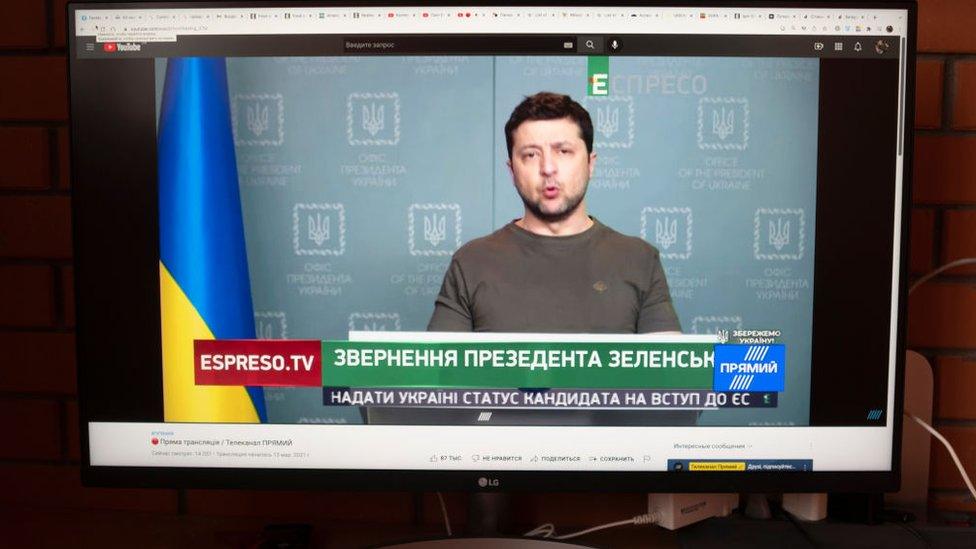Pavel Sheremet: Murdered journalist buried in Belarus
- Published
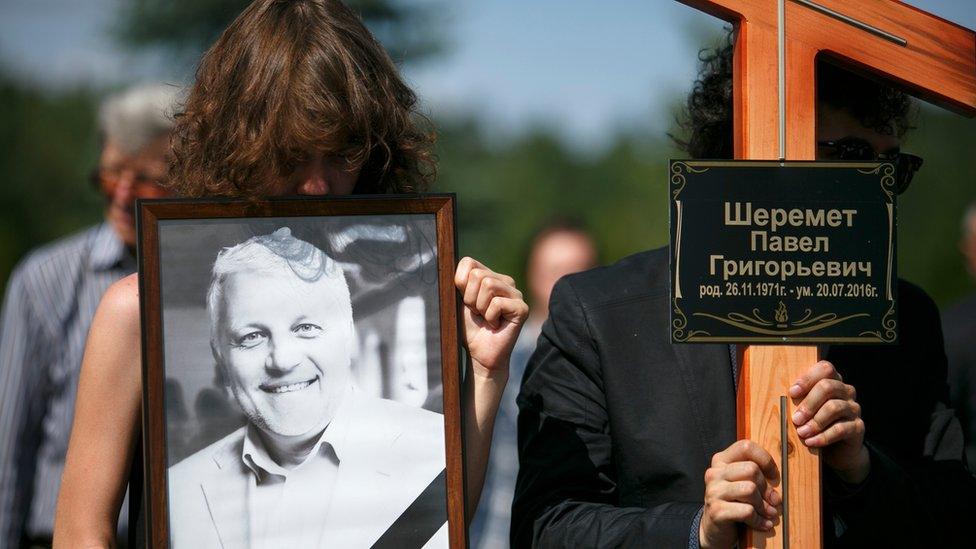
Mr Sheremet was critical of both the Kremlin and Ukraine for the mistakes made since they severed ties
Hundreds of mourners have attended the funeral of prominent investigative journalist Pavel Sheremet, who was killed by a car bomb in Ukraine.
He gained international prominence with his coverage of political oppression in his home country Belarus.
Forced to emigrate to Russia, he clashed with TV bosses there over his critical reporting of the Ukraine conflict, and moved to Kiev.
He was buried in the Belarussian capital, Minsk, where he was born.
Mr Sheremet, who was 44, reported for Ukrayinska Pravda, a news website known for its investigative work.
He was driving to work on Wednesday in a car belonging to his partner, the website's owner Olena Prytula, when the car was blown up.
No arrests have been made, but Ukraine has asked the United States and the European Union for assistance in solving the murder.
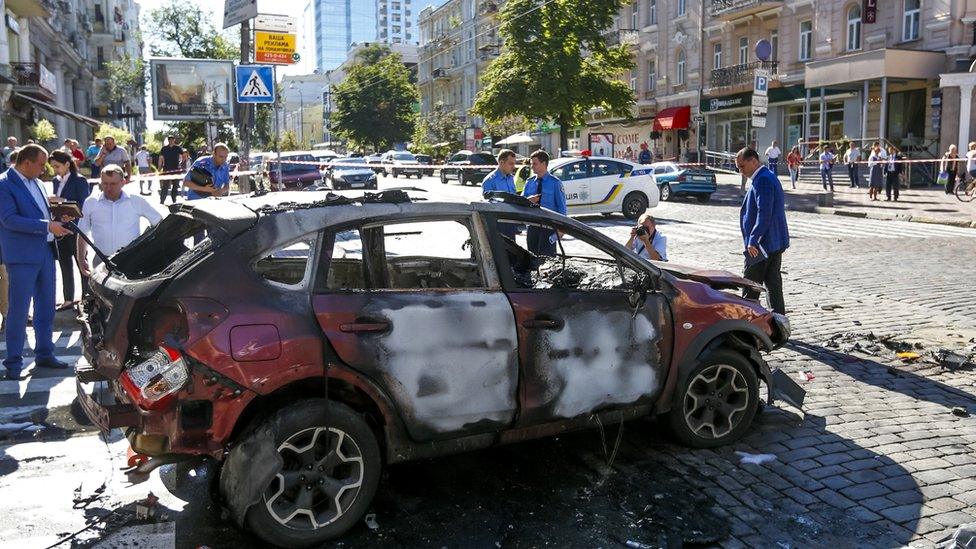
The car blew up on a major thoroughfare in Kiev as Sheremet was driving to work
Mr Sheremet, who was born in Belarus but had Russian citizenship, was respected in Ukraine for being critical of both the Kremlin and of mistakes made by Ukraine when it severed ties with Russia following its 2014 revolution and the ensuing conflict in eastern Ukraine.
"Sheremet will go down in history as a bright example of the new journalism of which the leaders of Russia and Belarus and Ukraine are afraid," Zhanna Litvina, head of the Belarusian Association of Journalists, told the AP news agency.
On Friday, hundreds of others paid tribute him in Kiev, including Ukrainian President Petro Poroshenko.
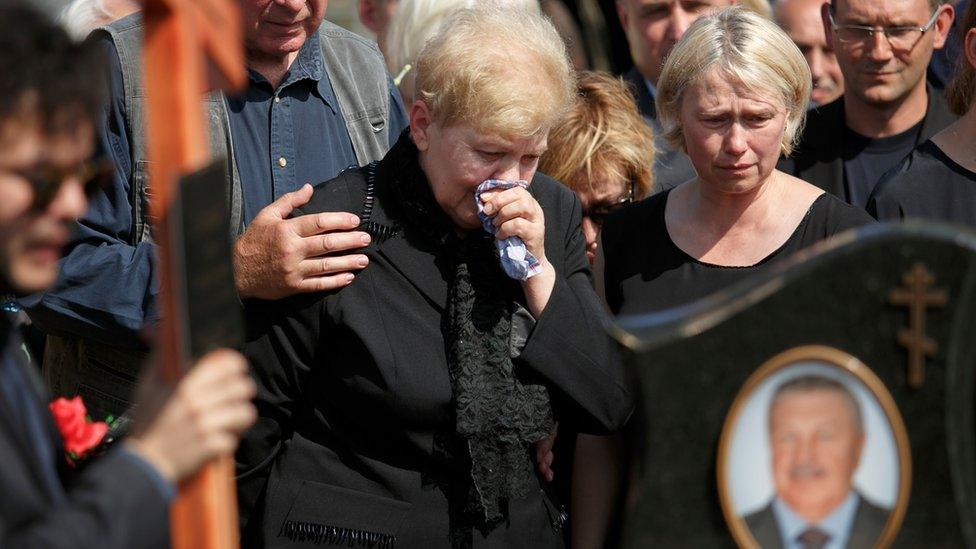
Pavel Sheremet is mourned not only by his mother and his partner (right), but by thousands of others in a country in which he had not lived for a long time
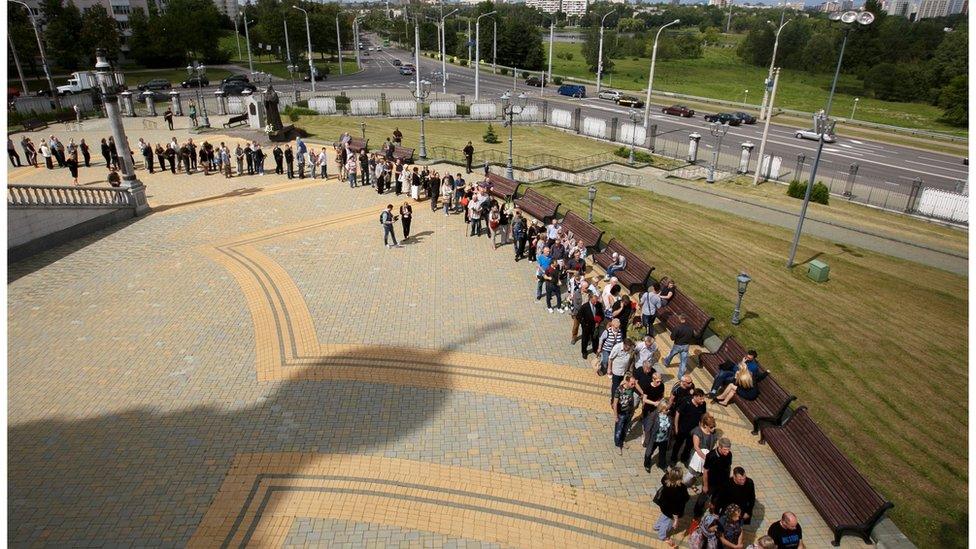
There was a long line of people paying their respects to the journalist they called "the star of three different nations"

Why was Pavel Sheremet a big name?
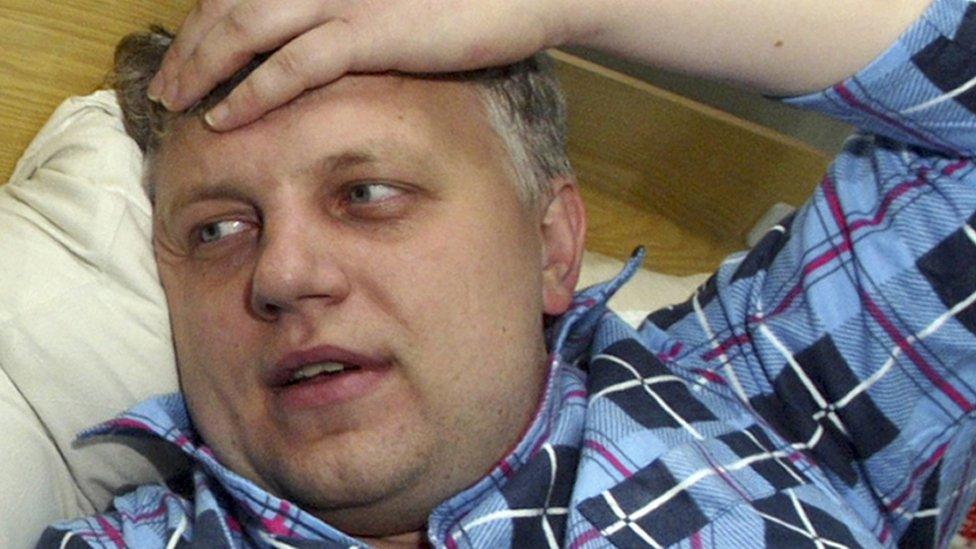
Sheremet left Belarus after years of harassment by the authorities
In 1997, Pavel Sheremet was jailed in Belarus after reporting on political oppression in the ex-Soviet state. Belarusian President Alexander Lukashenko has cracked down on dissent during more than 20 years of authoritarian rule.
In 2004 Sheremet suffered a severe beating in Belarus, where he founded Belarussky Partizan, an opposition news website.
Later he worked for Russia's ORT television and was a news anchor on Vremya (Time), which has a huge audience.
In 2014 he resigned from Russia's state-run Channel One TV, in protest at Russia's stance towards the political crisis in Ukraine.
He moved to Kiev and worked for Ukrayinska Pravda, an independent news website founded by Georgy Gongadze, who was widely seen as a martyr for freedom when he was murdered in 2000.
Gongadze's headless body was found in a forest outside Kiev. The murder fuelled anger that escalated into Ukraine's 2004 Orange Revolution.
That pro-Western upheaval was repeated in 2013-2014, when the Moscow-backed President, Viktor Yanukovych, was forced to flee.

- Published20 July 2016
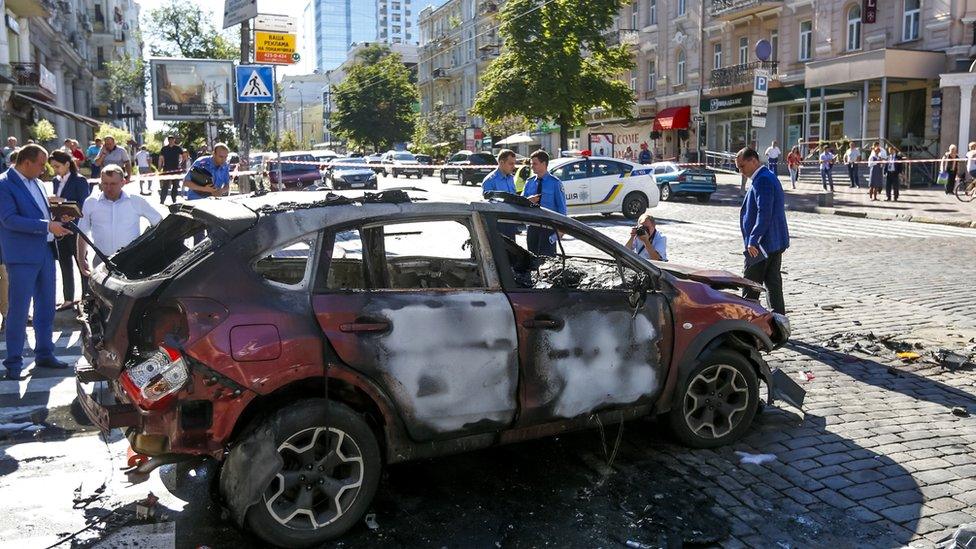
- Published21 April 2016
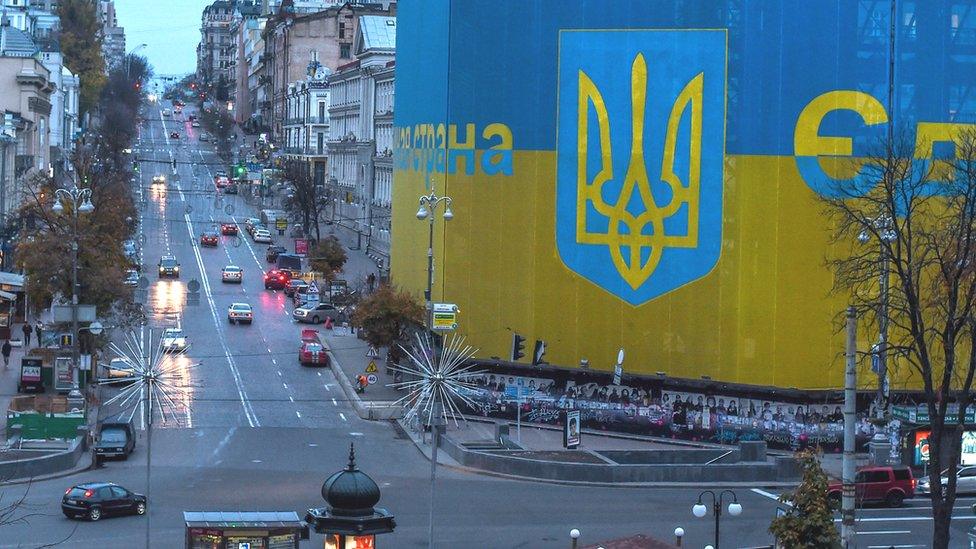
- Published21 June 2023
